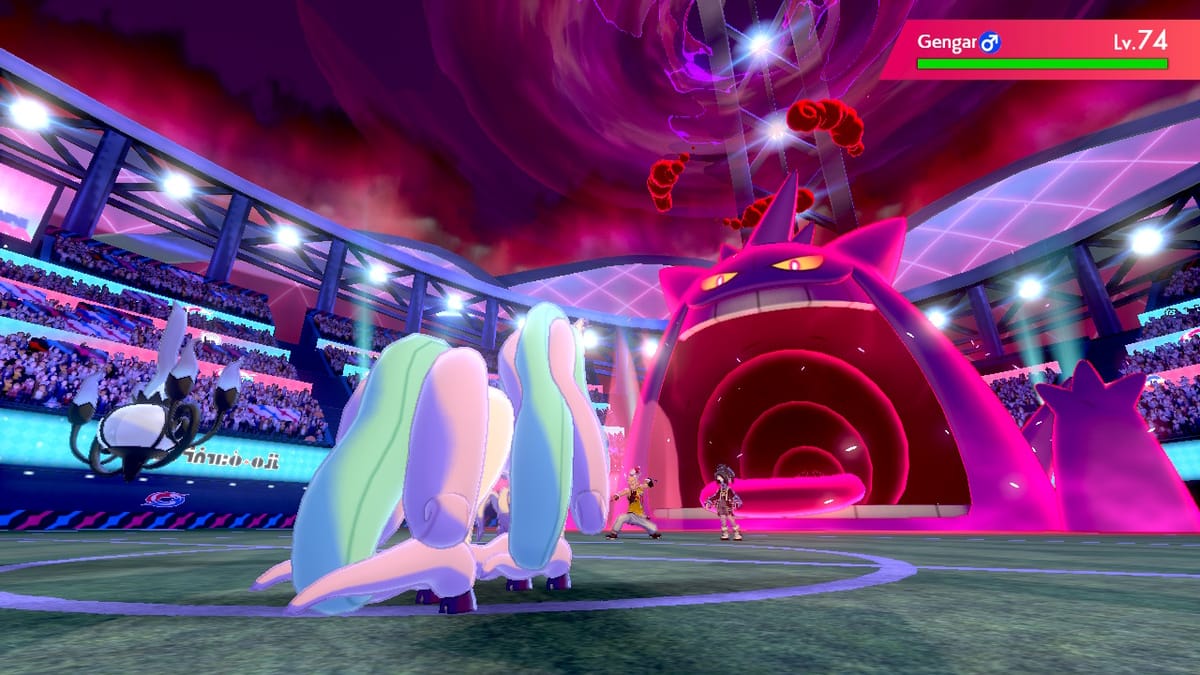$55 for a Video Game is Too Expensive (Or is it?)
How do we calculate the worth of a video game anyway?

I was stunned when someone told me that paying $55 USD for a video game was too expensive.
This was specifically about the Nintendo Pokemon games.
She said that unlike other gaming companies, Nintendo’s prices never drop no matter how many years you wait.
I was dumbfounded by her statement, because I was relieved that they were only $55. I was glad that it was under $100!
In contrast, when you have a “free” app game that tempts you to buy in-game items, it’s easy to spend hundreds or even thousands of dollars over time.
No, not everyone spends so much. But the point is that for games where you pay at the start, like these $55 ones, you don’t get tempted to pay for much more.
You can buy a Nintendo Switch online subscription if you want. You can buy the extra downloadable content too. But these are small, very limited expenses.
For those “free” mobile games, you’re enticed to keep buying more coins, especially if you play competitively.
What about artists’ labor?
The other money issue is: How much do we value an artist’s labor?
For a game such as the Pokemon Nintendo games, they have a massively long list of credits, with tons of illustrators, writers, voice actors, musicians, etc.
So they have to split the $55 sales between many artists.
You could argue that a movie has a long list of credits, too, but you can buy a ticket for just $10+.
However, movies are only about 2 hrs these days. For a Pokemon Nintendo game, it could last you at least 40 hours.
You could also argue that Nintendo is rich, and Pokemon is one of the bestselling games from Nintendo. So surely they have plenty of money to spare, right?
I do not know about their exact budgeting and staff pay. Yet, what I’m talking about, is how much we value an item.
Typically, we think about our situation and what we can afford personally. Or what we believe is a reasonable price.
But how often do we think about how much time and energy it takes for the artists to create something? They need to pay their bills and feed their families, too.
The unfortunate dilemma of buyer vs seller
This isn't just about video games, but about any sort of merchandise.
Some writers complain that people pay more for a cup of coffee than for a book. Despite the countless hours we spend writing and editing, not to mention money spent on hiring professional designers and editors.
As a writer myself, I can empathize.
But I’m also a reader. Would I buy books that often if I had to pay $100 per book? (Let’s ignore expensive textbooks for now.) Even $100 doesn't begin to cover the labor and expenses that go into making a book. Hiring a professional editor alone can cost several thousand dollars.
It’s an unfortunate dilemma. The average consumer can’t afford to pay much. But the artist can't survive on so little, either.
No, I’m not saying that book authors have the same salary as video game designers! Far from it. Especially when it comes to a game as mega popular as Pokemon.
But the same principle of “how much we value an artist’s work” applies here.
For books, the author needs to sell enough copies to both cover their expenses and make a profit. Most authors don’t sell enough to cover their costs, though, let alone make enough for a living.
Even for traditionally published authors, where the publishing house technically covers all the expenses, you earn only a small fraction of each sale. The publisher gives you an advance, but unless they think your book will become as popular as something like Sarah J Maas’ books, it won’t be a big check.
You won’t even earn any royalties until you’ve made enough sales to cover your advance. And in most cases, authors are still expected to do the vast majority of the promotion and marketing themselves.
This is not an article debating whether you should self-publish or traditionally publish (or both!) I’m only talking about the buyer and creator relationship here.
Frankly, most buyers want to spend as little money as they can. Most do not consider how much time and effort the artist puts into the creation, not to mention their years of experience and expertise.
While it’s true that most of us don’t have a lot of money, there’s also the matter of what we choose to prioritize financially.
The truth about spending priorities
Would you spend $15 to watch a movie once? Or $5 to buy a book that you can read as many times as you want?
Most people choose the $15 movie…
This isn’t about shaming people who like to watch movies, or criticizing folks who don't love books. Different media work for different folks. The point is that while our money is limited, we also have spending priorities.
It’s hard not to be resentful sometimes, and just blame people for having a short attention span for reading.
But remember that a lot of people still buy books. I myself buy books every month, though they are ebooks so are cheaper. I wouldn’t buy books this often if they cost $100 or more, though.
Therapists face a similar challenge
The financial dilemma is not just with products, but with services, too, such as with psychotherapy.
Someone posted in my Ontario therapist Facebook group. She worried that as more and more therapists offer lower fees, this will gradually become the norm. People will think full fee therapists are too expensive, even if they fit industry and geographical standards.
There was a mini debate in the comments. Some were sympathetic to her concern. Others said that they want therapy to be accessible to poor folks, who are more likely to need therapy in the first place.
I’m a therapist who still doesn't make enough to survive in Toronto, and have to rely on my parents' financial support. So I feel torn about this.
On the one hand, I feel for clients who can’t afford the full fee. Poverty is the source of so much stress. It doesn't mean rich people don't have mental health concerns. But poor people can be especially vulnerable and in need of support.
On the other hand, it does make it hard for the therapist to pay the bills. Especially as we have to pay so much for business expenses: office rent, supervision fees, annual membership and professional fees, liability insurance, advertising, accounting software, video call software, encrypted email services, continuing education (training courses are expensive as hell), etc.
If you’re neurodivergent like me, and don’t have the energy to take on a large client load, good luck trying to survive (without family help).
The admin of the Facebook group, however, has a different opinion. He believes that the solution is to push the government to pay for therapy services, like they pay for family doctor fees (here in Canada.) He says that we have power in numbers.
Getting the government to pay for our therapy may sound like a pipe dream.
But hey, it was only last year that our Ontario government finally stopped charging taxes for therapy, thanks to therapists pushing the government for years to change their policy.
So who knows? Imagine if the government pays so that even poor people can see a therapist for free, with unlimited sessions, and no need for mega long waitlists.
Then everyone’s mental health would be better. And we would all be happier and more motivated to work in the first place, which creates a more prosperous society. So that's a win-win for everybody.
We must put the people first. Without the people, there will be no society.
Wrap Up
What do you think of this dilemma? The average consumer wants to pay as little money as possible, but the artist (or provider) needs to make a living too.
I would love for the government to support us. But until that ever happens, what do we do in the meantime? Is it possible to have affordable prices for consumers, but still pay enough for the artist (or service provider) to live?
If you want more fun articles on culture and society, join me here!



